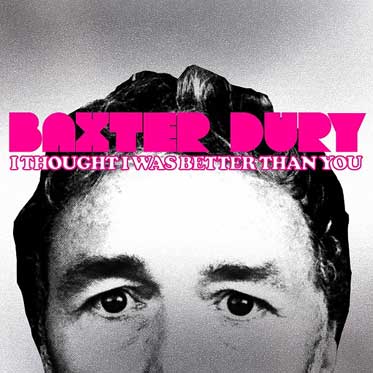It seems that Baxter Dury He has tired of exclusively wearing that seductive and vacillating crooner suit that, on the other hand, suited him so well on records like “Happy Soup” (EMI, 11), “It’s A Pleasure” (Le Label, 14) or the most recent “The Night Chancers” (Heavenly, 20). Dury presents, in what is already his seventh studio album and in this case under the tutelage of producer Paul White, new creative personalities, pointing in different directions and betting on an album with greater diversity, as well as significantly more ambitious than previous installments .
A bet that includes clear flirtations with hip & hop and R&B, some auto-tune, and a very generous presence of female voices (by Eska Mtungwazi, JGrrey and Madeline Hart) with whom she shares the spotlight. “I Thought I Was Better Than You” It also boasts high doses of irony, rancor and malice spread over the lyrics that link songs to form the decalogue, always with the consistent theme derived from having been the son of a well-known character like Ian Dury (responsible for the hyper-radiated hymn “Sex & Drugs & Rock & Roll”) as a background.
And it is that the usual grooves of the British seem here tarnished in agitating more minds and consciences than hips and feet, avoiding at all times a hypothetical dance floor. Yes ok “I Thought I Was Better Than You” continues to find his main ally in synth indie-pop, the truth is that the LP is much more complex –in its own composition and also in its subsequent assimilation– than Dury used to, something that is evident in songs mutated into self-exorcisms of the type of “Leon”, “Celebrate Me”the initial “So Much Money”, “Shadow”, “Crowed Rooms” o “Ayslesbury Boy”.
It is always possible to be grateful that a musician ventures into unprecedented paths to avoid stagnation, but the truth is that those direct, sensual, mischievous and enjoyable pieces that were intense in previous works have disappeared. The author shows a personality that points to premature maturity and that, in practice, translates into half an hour with sections of relative inertia. The same one that definitely makes you yearn for that rogue spark of yesteryear, now disappeared or at least concealed.
